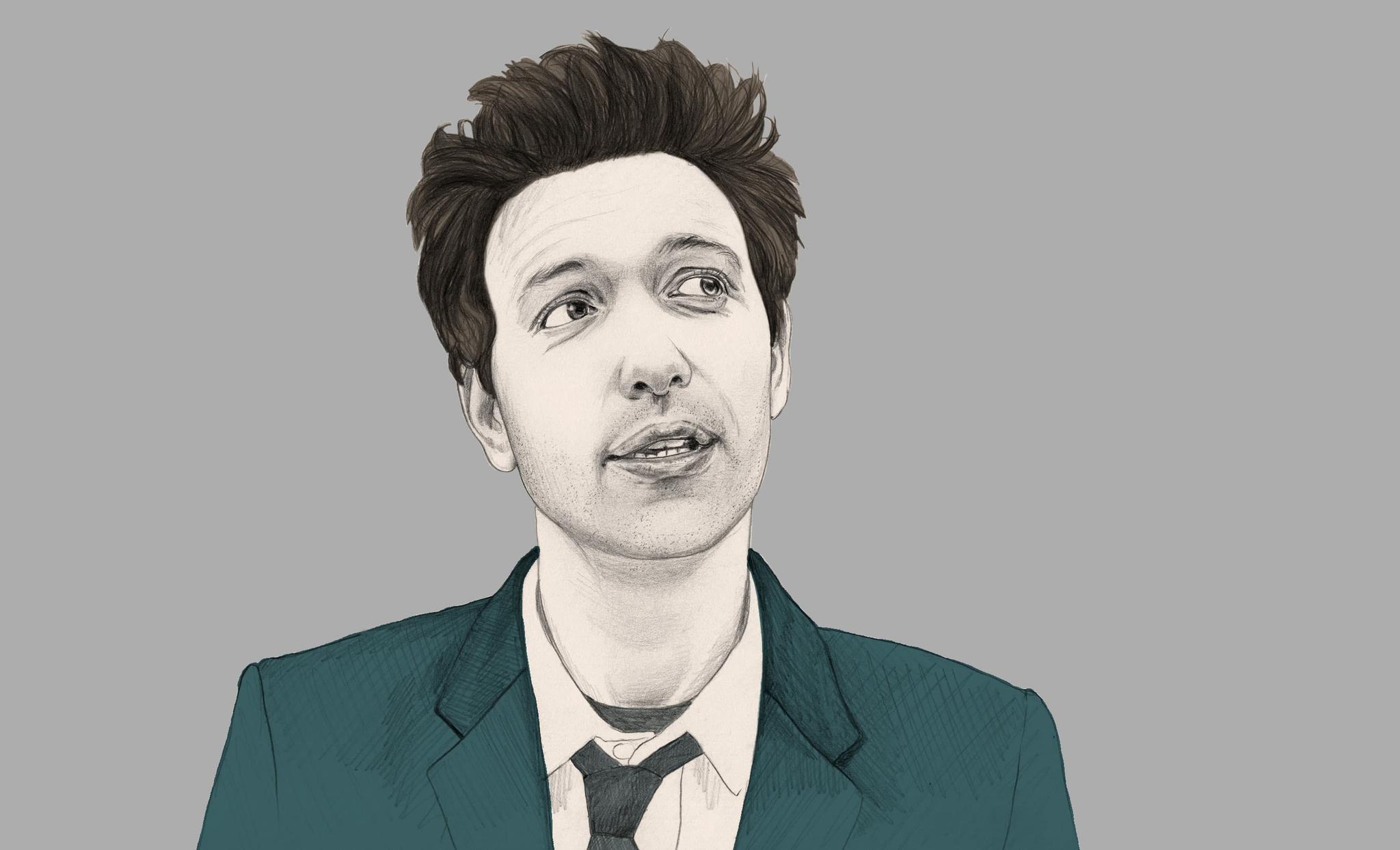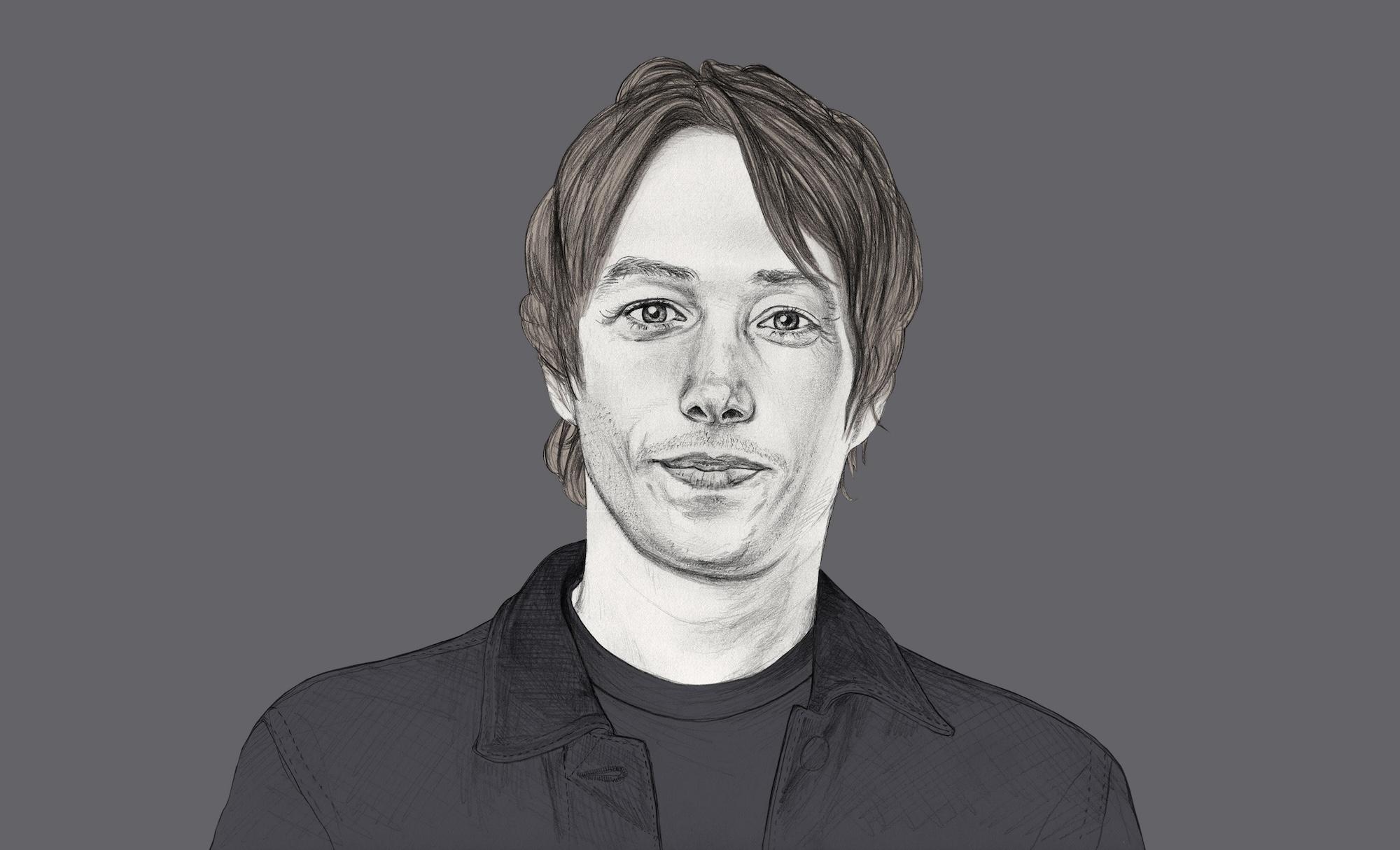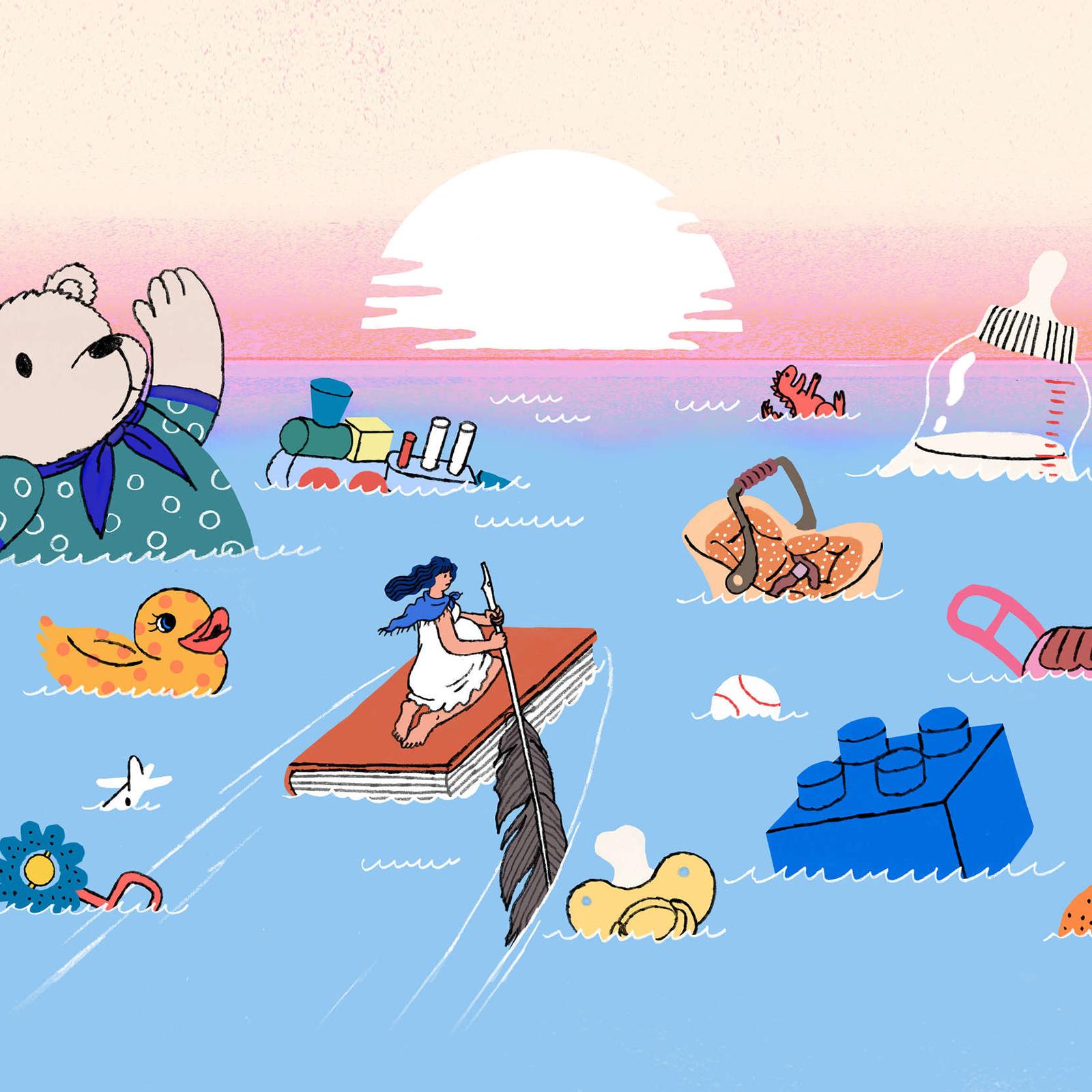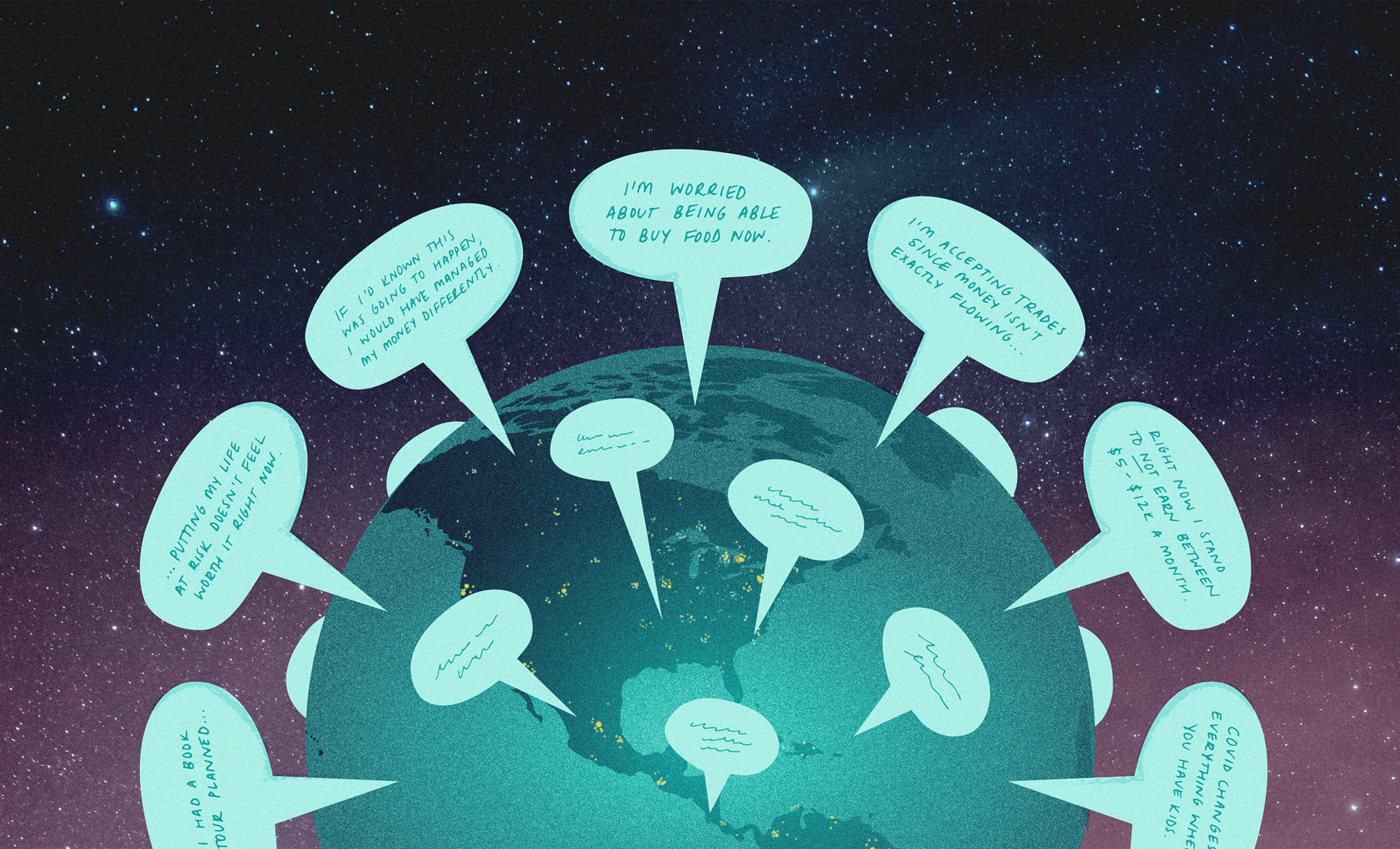
Money Diaries
Alex Karpovsky, Star of HBO's Girls, Has Always Known the Hollywood Money Would End
Not to mention how being a struggling filmmaker until your mid-30s gives you great financial perspective when you finally get paid.
Wealthsimple makes powerful financial tools to help you grow and manage your money. Learn more
Wealthsimple is a whole new kind of investing service. This is the latest installment of our recurring series “Money Diaries,” where we ask interesting people to open up about the role money has played in their lives.
My mom knows this loan shark in Lowell, Massachusetts, an old Russian woman who will give you money but charges crazy interest, like 20% a year. There are huge penalties if you don’t make your payments, and the interest can rise to 25%, even 30%. But when I was 30, I found myself desperate enough, and I went to her. My mom brokered the deal and got me $10,000, enough to buy me one more new start. In a way, that made the difference in my life.
My parents are Russian immigrants who came to America in their late 20s, and like many immigrants, they had almost nothing. They settled into a tiny apartment in Binghamton, New York, where I was born. Money was always tight, and they had a frugal, Soviet mentality. If I left the lights on when leaving a room, my dad would let me know: “Turn the fucking lights off!”
The problem was I was scared of the dark. I never had a babysitter, since my parents couldn’t afford one, so when they’d leave, I’d turn on a lot of lights. When it was time for them to come home, I would slowly start turning off the lights, trying to balance my fear of the dark with my fear of my dad catching me wasting electricity.

Sign up for our weekly non-boring newsletter about money, markets, and more.
By providing your email, you are consenting to receive communications from Wealthsimple Media Inc. Visit our Privacy Policy for more info, or contact us at privacy@wealthsimple.com or 80 Spadina Ave., Toronto, ON.
My parents’ frugality shaped my early relationship with money: I was really frugal, too. When I was 13, after we’d moved to the Boston area, I got my first job, helping out at the dental office where my mom was an assistant. I made $3.50 an hour and put every dollar I saved into buying Nintendo games. It took me weeks to save for a single game. At 16, I got my driver’s license and got a job delivering chickens for a company called Boston Chicken, which later became the national chain Boston Market. With my delivery income, I wasn’t buying drugs or clothes or music, only video games. Most games were 40 or 50 bucks, but there was a game called Fantasy Star for the Sega Genesis that cost $80. It was the best money I’d ever spent—that game was mind-blowing.
"I was 30 years old, and I’d see guys I went to high school with hanging out at the gas station, and I’d think to myself, What’s really separating me from them? Just this delusional dream I’m holding on to?"
After college, I moved to New York City to follow my dreams of being a filmmaker. But New York City is really expensive, and when you’re putting money in to making your own movies, that doesn’t make it any easier. This was before the rise of crowdfunding platforms, like Kickstarter, which have changed the indie-filmmaking landscape to some degree. All I knew was that I had movies I wanted to make, and putting in my own money seemed like the only way to get them made. I spent between $2,000 and $15,000 on each film.
None of them would have happened if I’d been waiting for someone to fund them. I could have gone around town and pitched my ideas to people, but I had no experience and didn’t really know what I was doing, and the movies weren’t commercially viable in any way. Really, I was just running around with a video camera with my friends. So I don’t regret sinking my own money into these films, but in retrospect, there were a few sensible things I could have done. For example, casting some recognizable actors in your movies really helps get them seen. But you don’t know all that stuff when you’re a kid. After eight years, I’d made four films, and none of them had made any money. I wasn’t getting many acting gigs, and my only regular income came from being a karaoke-video editor. Several times, for financial reasons, I ended up moving back in with my parents for a while.
Each time, I had a game plan and new projects in mind, and staying with my parents for a few months at a time felt like a worthwhile sacrifice. That said, there were points where all my self-justifications would break down, and I’d feel that I wasn’t getting any closer to realizing my creative ambitions, and I would get really sad. I was 30 years old, and I’d see guys I went to high school with hanging out at the gas station, still living in the small town where we’d all grown up, and I’d think to myself, What’s really separating me from them? Just this delusional dream I’m holding on to? Ultimately, I decided I’d do whatever it took to get back to New York City. And that’s when I borrowed money from the loan shark.
Recommended for you

To Win Four Oscars, Sean Baker Had to Go Broke Again and Again
Money Diaries

Love and Crypto: The Hackatao Story
Money Diaries

Karen Russell: A Brutally Honest Accounting of Writing, Money, and Motherhood
Money Diaries

She’s a Toronto Legend, Model, and Style Icon. And She Was Nearly Homeless
Money Diaries
So I went back to New York City with that $10,000 from the Russian woman. But with my freelance editing gigs, I was able to pay the loan back on schedule.
"This is a nice little moment where I have a bit of security and independence, but Girls is ending, and soon enough my life will go back to the way it was before Girls."
Getting cast on Girls was completely a lucky break and really changed my life. My first season, I wasn’t a “regular” character, I was a “recurring” one, so I was paid by the day. On our last night, after we shot the final scene, we all went out for beers. We had no idea if anyone would watch Girls—it hadn’t aired yet. Lena Dunham came up to me around 4 in the morning and said, “If we come back for another season, do you want to be a regular?” I said, “Of course!”
As a regular, you’re paid by the episode, and when they told me how much I would get paid, I was like, Wow. And when you do TV, you sign a six-year deal, with step increases for every season. I remember looking at the pay scale and the step increases, and climbing the steps with my eyes, thinking, Whoa! It was pretty fucking far-out. Of course, at the time, none of us could imagine season six—that seemed like total fantasy. I mean, we could hardly imagine doing season two. But now, five years later, here we are finishing season six.
As far as investing, I’m not that smart with my money. All of my money is sitting in a checking account. It’s not even earning interest. My brother berates me for this. But I get really anxious and stressed out and very easily confused when people talk to me about CDs and interest rates. I think my anxiety closes off my comprehension. A while ago, I was pressured a bit by my dad to play the low- to medium-risk stock market, so I gave some money a couple years ago to an investment firm, and I lost 7%. So, I was like, Fuck it, I’m not doing that anymore.
I have a little bit of money now for the first time in my life. It’s a huge relief. My whole life, I’d lived in this cloud of nagging, swirling financial worry. There’s always some outstanding AT&T bill. Or maybe you break your finger and have to get emergency care, and they’re still charging you $80 for something. And then on top of that, there’s rent every month. You go out with friends and spend $60 for dinner and drinks and wake up feeling like killing yourself because you spent so much money. It never relents. To finally have some peace from all of that means so much.
At the same time, though, I think a lot about the relationship between happiness and money. We live in an extremely capitalist society—the most capitalist on the planet—and money really permeates your worldview in ways that you may not be aware of. Money creates all kinds of anxieties and fears. In America, our rates of suicide and depression are really high, even though we’re supposedly the strongest economic country in the world. I think more people should start thinking about the ways money affects their everyday life.
Now that I have some money, I don’t spend it on clothes, I don’t spend it on cars, and I don’t even travel that much, although I would like to. The one luxury item I’ve permitted myself is a pair of $300 Bose noise-canceling headphones. Here’s the thing: I’m aware that the money’s going to run out. This is a nice little moment where I have a bit of security and independence, but Girls is ending, and soon enough my life will go back to the way it was before Girls. Emotionally and spiritually, I’m making peace with that. Financially, I’ve always been at peace with it, in the sense that I’ve never stopped being frugal.
I’m 41 now. For the first 33 years of my life, I didn’t figure out a way to make money. Post-Girls, maybe I’ll still get a few jobs here and there, but ultimately my career will probably go back to where it was. And I don’t want to say I blew through everything I made. I’m trying to be sensible and prudent with my money because I know I have to live off this money for the rest of my life. I’m not going to win the lottery twice.
As told to Davy Rothbart exclusively for Wealthsimple. Illustration by Jenny Mörtsell. We make smart investing simple and affordable.
Wealthsimple's education team is made up of writers and financial experts dedicated to making the world of finance easy to understand and not-at-all boring to read.





